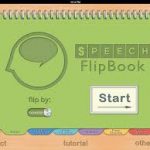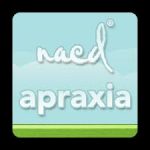Speech Therapy Treatment For Adults
Just like children, an adult can also have speech disorder by different reasons like Stroke, Traumatic Brain Injury, Concussion, etc. At HearingSol, we check areas for improvement and work with the speech impaired patient to develop a plan to cure it. Also during therapy, we continuously review and modify these plans according to patients progress. In short, we will provide you the best treatment with completely satisfying results. Visit our clinic today or call us at our toll-free number +91-9327901950.
REQUEST A CALL BACK
Children with speech and language delays are getting benefit from speech therapy, although there are many individuals who are not aware of the advantages of the speech therapy exercises for adults. We all know time flies but its completely up to you that you want to be the navigator of your life or not!
If you need any assistance or have a question about Speech Therapy For Adults, you can consult our HearingSol experts with your problem, feel free to call us on +91-9327901950. We are always here to help you.
As we grow old, our body changes including our speaking skills which can get affected by aging illness or personal struggles. As a result of weakened muscles in the vocal cord area and throat and declined cognitive abilities can be injurious to speech as injury or illness. The difficulty in speaking not only affect an adult’s social life but also their professional and interpersonal life.
For instance, during chewing or swallowing difficulty, you will find yourself coughing before, during or after swallowing. The voice quality also starts degrading with time. Speech therapy at any age is very effective when it comes to communication, language and swallowing difficulties.
Adult speech therapy includes the examination and treatment of an individual with speech, language and cognitive functions ( for example – an individual having difficulty with memory, learning, perception or problem solving skills), as well as swallowing disorders.
Speech therapy for adults is part of the recovery plan for injury or illnesses which is extremely necessary for events like Parkinson’s disease, multiple sclerosis, stroke or brain injury. Accidents that cause jaw, throat or facial structure injury can also lead to speech delay. There are also medical conditions that can affect the speech, language and eating in adults.
What Causes Speech And Language Delays In Adults?
The speech therapy programs vary according to the individual needs of each patient. Speech therapist first identifies the disorder and then depending upon the speech and language delay one treatment is decided.
There is a wide range of disorders affecting speech activities in adults. Some of them are:
1. Speech Disorders
(a) Dysarthria
It is a motor speech disorder due to muscle weakness which makes people hard to talk. It affects several speech subsystems including resonance, phonation, articulation, respiration, and prosody. The portion of the brain that control production of sound gets damage due to a certain disease or neurological injury.
Therefore, it affects the connection from the brain to the speech muscle resulting in the immobility of facial muscles, lips, tongue, and the vocal cords.
Causes of Dysarthria
- Parkinson’s disease
- Brain injury
- Stroke
- Guillain-Barre syndrome
- Huntington’s disease
- Wilson’s disease
- Tumors
- Myasthenia gravis
- Muscular dystrophy
- Lyme disease
There are some medications which can also cause dysarthria such as sedatives or narcotics.
(b) Apraxia
It is a motor disorder in which a person has difficulty with motor planning to perform a certain task. Most of the time, individual have trouble understanding what other people say or in telling another person what they are thinking.
Apraxia has different types which can also occur in some other part of the body such as legs or arms. The symptoms of Apraxia in adults can vary from person to person. Apraxia is also called dyspraxia or verbal apraxia, and apraxia of speech.
Causes of Apraxia of Speech
Any kind of activity that damages the brain can cause apraxia. This includes:
- Traumatic Brain Injury
- Stroke
- Brain Disease
- Dementia
(c) Articulation
Most of the adults have speech disorder since childhood which later becomes a huge problem when they attain adulthood. People classify articulation difficulties as “speech impediment”, “pronunciation or speech problem”.
Since these difficulties are from childhood, therefore, it can be difficult to cure them but not impossible. Speech-language audiologist fixes the speech disorder through articulation therapy and there might be alternate speech therapy for adults.
(d) Dysfluency (Stuttering or Stammering)
Stuttering or Stammering is a speech disorder in which flow of speech of an individual is damaged by prolongation and involuntary repetition of sound, syllables and silent pauses or blocks.
A dysfluent individual is unable to produce certain sounds. And if anyhow it remains unresolved then it not only affects their personal life but also their career progressions and emotional relationships.
Stammering therapy helps grownups who continuing stutter or stammer. A person can also decide to undergo a fluency program or take cluttering therapy from a certified speech therapist.
2. Language Disorders
(a) Aphasia
It is a language disorder that occurs when a person goes through brain damage. Every person’s brain has two sides, your language skills are present on the left side of the brain, so damage there can result in language disorder. Vice versa any damage on the right side of your brain can result in poor memory or attention.
(b) Cognitive Communication Disorder
A cognitive communication disorder results from the non-functioning of one or more cognitive processes. It includes memory, perception, language, reasoning, processing speed and problem-solving. If anyhow the frontal lobe of the brain gets damaged or some stroke happens in the right hemisphere of a person then these cognitive processes will stop working.
An individual with a cognitive disorder can sometimes have a problem in sticking to a particular topic or understanding jokes and directions. A speech therapist offers personalized treatment for a cognitive communication disorder as this disorder varies from one person to another.
(c) Voice
Most of the younger people between age 21-35 experience voice problems(dysphonia). These voice problems can occur from stress, injury or certain disease and affect the quality and function of a person’s normal voice.
A speech-language therapist might suggest abdominal breathing therapy for voice care. Taking a deep breath and breathing from the diaphragm is very necessary for proper voice care.
(d) Swallowing disorders (Dysphagia)
It can occur at different stages of the swallowing process. It includes Oral phase (sucking, chewing), Pharyngeal phase ( swallowing reflex, moving food from the throat and closing of the airway) and Esophageal phase ( pushing food through the esophagus into the stomach).
Cause of swallowing disorder
These disorders may be a result of head or neck surgery, progressive neurological disease ( such as Parkinson’s disease), stroke or other medical conditions. A speech therapist may recommend specific swallowing treatments, specific food or liquid textures which are easier to swallow.
3. Medical Conditions
(a) Dementia
Aphasia or speech disorder is common in individuals with dementia. Dementia causes a problem with thinking and memory loss. Dementia can be the first sign you notice within you or in your loved one.
In the beginning, you will notice your loved one will start forgetting words or have difficulty in making a conversation. There will be the time you often times you might think that your loved one is losing interest in your conversation but on the other hand they are struggling on their own.
They try to remember words they want to speak but they can’t. The portion of the brain which is responsible for learning and memory is compromised.
(b) Oral Cancer
Unfortunately, you can have cancer on your upper or lower jaw, lips, gums, tongue, throat, and cheeks. This is known as oral cancer. The presence of tumor causes speech and swallowing prior to any kind of treatment. The nature and severity of the speech problem change with the size and site of the tumor. Mouth cancer also affects the way you speak and eat.
Some of the signs of oral cancer are difficulty in swallowing and chewing, the problem in moving your jaw and tongue, a white or red patch or lump present inside your mouth for longer than a month.
(c) Laryngeal Cancer
Our voice folds are present inside the voice box or larynx. When you try to speak, air begins to move from your lungs through your vocal folds and at last to your mouth. When your vocal folds start vibrating, then the sound is produced.
Laryngeal cancer can form on your vocal folds or any other portion of your larynx. Weight loss, Difficulty in swallowing, bad cough, earache for a longer period, and Bad breath are the common signs for Laryngeal cancer.
(d) Traumatic Brain Injury (TBI)
A TBI is a brain injury which is caused by any sudden damage to the brain. Sudden damage can happen after an object or thing passes through your head such as a gunshot. A TBI can also cause after a blow to your head.
After a TBI, you can notice a speech delay. This speech disorder can be because of weak muscles ( dysarthria) or you can also have difficulty in controlling your muscles (apraxia).
After the injury, you can also face challenges to understand what others speak to you. Swallowing disorder is an among one of the signs of TBI, you can have a problem in chewing or may choke or cough while eating.
(e) Right Hemisphere Brain Damage (RHD)
RHD is the damage to the right side of the brain. The damage to the right side controls memory, attention, problem solving and reasoning. Any individual with RHD might have difficulty with thinking skills.
Some of the signs of RHD are difficulty in reasoning and problem solving, social communication, perception, orientation, and insight.
Common Signs That An Adult Might Need Speech Therapy
It is a quite embarrassing situation when an adult is facing difficulty while speaking to someone else whether it be office or home. Below are given some of the symptoms related to a specific speech or language disorder –
1. Expressive Language Disorder
Expressive language disorders are diagnosed when a person has difficulty in speaking grammatically correct sentences or problem in producing languages or translating thoughts into speech.
You often find people struggling with Language processing challenges at home as well as at their workplace.
Signs of Expressive language disorder at home
- Usually, forget words or speak them out of order,
- Use substitutes instead of the same words when those substitutes don’t mean the same exact thing such as saying “beef” in place of “chicken” or “couch” in place of “chair”.
- Frequently make use of made-up words when adults are not able to produce the correct word.
- Difficulty in finding the exact words so use substitutes like “things or ” stuff”.
Signs of Expressive language disorder at work
- Keep on struggling to patch up with other office colleagues or face challenges in keeping with office small talk.
- Difficulty in mastering the vocabulary of the workplace, also keep on saying the incorrect words in an office meeting.
- Face challenges in taking face to face with supervisors.
- Often face rejection at an interview.
- Feel anxious when it comes to giving a presentation or lectures.
2. Receptive Language Disorders
Signs at Home
- Unable to answer the question about the current discussion topic.
- Even with the loved ones, often find lost or not interested during the conversation.
- In the presence of any kind of background noise, adults with receptive language disorder find it difficult to concentrate n the conversation.
- Can’t understand jokes, also takes everything casually.
Signs at work
- Difficulty in answering questions during meetings.
- Face challenges in following multi-step verbal instructions. so, recommend getting all the messages through email.
- The problem in taking top more than two people during meetings.
- Usually, misinterprets friendly conversation as confusing or rude.
3. Signs of Dysarthria
- “Slurred” or “Mumbled” speech,
- Speak softly,
- Sound robotic or choppy,
- Unequal speech volume,
- Talk too fast,
- The problem in moving your facial muscles or tongue,
- Speaking too loudly or difficulty in speaking louder than a whisper,
- Monotone speech.
4. Signs of Apraxia of Speech
- Oral apraxia (damaged volitional oral movements).
- Having difficulty in copying certain sounds or have difficulty in making new sounds, leave sounds or something speak in a different way.
- Groping ( Moving your lips and tongue to be in the right place when trying to speak or speak slowly.
- Difficulty in automatic speech such as saying things like How are you? or Hi.
- Delays with gross or fine motor skills.
In case you notice these signs within you or with your loved ones or colleagues then, do consult speech-language pathologist because it’s never too late. Adults with speech and language disorders whether developmental or because of some other cause as mentioned above.
Speech Therapy Treatment For Adults
1. Augmentative and Alternative Communication (AAC)
According to the National Institute on Deafness and Other Communication Disorders (NIDCD), different kinds of assistive devices are available and AAC is one of them. AAC helps you with speech and language delay to express themselves by using devices that can vary from an easy picture board to a computer program that produces sound.
AAC helps not only speech impaired but also other impaired people, for example, congenital impairments such as intellectual impairment, cerebral palsy, and autism. It also includes acquired conditions such as Parkinson’s disease, amyotrophic lateral sclerosis. Adults get help by using AAC at the workplace or while making conversation.
Types of Augmentative and Alternative Communication
- Unaided Systems – You will not require any kind of device except your own body to use unaided systems. This system includes gestures, sign languages, facial expression, and vocalizations. The informal unaided vocalizations and gestures include facial expression and body language.
- Aided AAC – An aided AAC is any kind of tool or device, whether electronic or non-electronic. These devices help in transmitting or receiving messages. AAC range from simple communication books to generating devices, which varies the area and communication difficulty. It is two type – Low tech communication and High tech communication.
- Low-tech communication does not require electricity or electronics, and batteries. It includes a simple pen or paper, communication board or books from which you can easily select letters, words, phrases or symbols in order to communicate a message.
- High-tech communication includes allowing the storage and retrieval of the electronic messages which will help you with speech output. It includes Keyboard based solutions that assist in touching letter or pictures on the screen of a computer.
The speech therapist will first test how you speak and understand. Then, depending on your evaluation, SLP will recommend AAC system for you. The therapist may suggest you a basic system in the starting for the very short interval, in case you recently had a mouth surgery or a stroke and there is a possibility that you will have your speech back soon.
2. Speech Therapy for People With Tracheostomies or Ventilators
Generally, those individuals require help who is on a ventilator or have a breathing problem or have a tracheostomy. A Tracheostomy is a surgical opening inside the windpipe. After the surgery, it is difficult to speak as the air no longer move from the vocal folds, as a result, the person is unable to produce sounds easily.
In most cases, individual may be able to speak a few sounds but after that went out of the air. There are ways to talk with tracheostomy some of them are discussed below –
- When you try to block the trach tube opening with the help of your finger, then the air will move up to your mouth. you can utilize this air in speaking.
- In case you have a ventilator, then you must have your ventilator attach with your trach tube in order to control the breathing.
- An SLP with your doctor or your respiratory therapist will help you with your speech, language and swallowing disorder. He/she will use different augmentative and alternative communication ways such as writing, pointing to pictures, or using different electronic devices. The speech therapist will guide you on how to eat and drink safely.
3. Accent Modification
An accent can be a cause of frustration or can be a source of pride. Although speaking with an accent is not a speech and language disorder. But in adults, accent modification improves communication skills and neutralize foreign or regional language. It also modifies the speaking voice which in turn build confidence and improve social life of a grown up.
The speech-language pathologist will help you in the way you talk which includes your speech rhythm and in what way you put stress on some of the specific sounds. He/she will first ask you to read words and sentences then after listening to the way you speak in the conversation, he will find a communication problem and change your accent depending on the diagnosis.
Insurance companies will not pay in case you change your accent as the accent is not included in the speech and language disorder. For any paying related quires related to the accent modification, you can consult your SLP.
4. Voice and Communication Change for Transgender People
In case you are a transgender and you want to change the way of your speaking, there are certain ways to have voice and communication therapy. A speech therapist first talks to about your goals than on the basis of that he/she will suggest you safer ways to speak and recommend you ways that will not hurt.
Ways To Use Apps In Adult Speech Therapy Sessions
Speech-language therapist use apps in the session with adults. There are different types of apps for speech therapy. Below is the way to use apps and how to use it after that –
1. Speech FlipBook
It offers thousands of single-syllable words which are fully-adjustable by sounds. Also, very beneficial in generating word lists for dysarthria and apraxia.

2. Tongue Twisters
It provides an assortment of different sentences which you can read slowly and loudly and also can challenge the motor speech system.

3. You’re Only Old Once
This app provides Dr. Seuss book especially for adults to work on rate, prosody, and clear speech.

4. NACD Apraxia series
This uses simple syllables in sound classes to help an individual with apraxia of speech.

5. Word Vault
This app offers a different type of picture, words, and therapy options which provide different sounds and syllable length for different types of goals.

A certified speech therapist will solve your all concerns related to speech, voice and other acquired communication disorders. A speech-language pathologist also recommends apps as a therapy tool for the specific speech disorder.
The health and medical field is one of the area where technology not only helps adults but also empower them to make continuous growth. Dial our toll free number +91-9327901950 to get rid of all hearing as well as speech problems.
